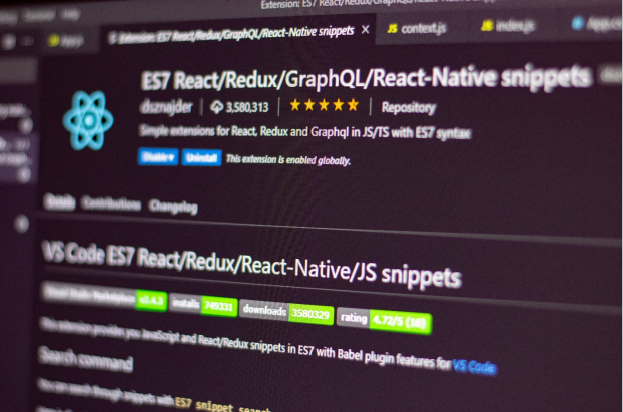
Which approach you will choose to develop your website: Hybrid or Native Mobile App? We give you a particular comparision between Hybrid vs Native Mobile development so that you can make a better decision.
The pace at which technological advancements have transformed the ways mobile phones are used today is phenomenal. These portable devices have become an essential tool for carrying out various daily tasks. In the 20th century, this device was merely used to make phone calls. Now, a mobile device can be used to record important memos, make video calls, use it as a compass to explore new destinations, and much more.
However, these features would have been impossible if there was no room for app developments on smartphones. Mobile apps make a user’s experience count as they provide easier access to a variety of functions. That is why many enterprises have adapted to leverage them to accomplish their goals. Introducing a mobile app has become a necessity for many businesses as it helps them deliver personalized experiences and serve customers better.
However, when it comes to the actual development process, many are often confused about choosing the right strategy, i.e., hybrid or native mobile development. For this, one must know the differences between the two approaches hybrid vs native mobile development and their inner workings.
Here is a description of some basic differences between the two procedures.
Table of Contents
Comparison of Hybrid vs Native Mobile Development

1. Native Mobile Development
Native app development refers to the construction of mobile applications that can only be run on a particular operating system, such as Android or iOS. These apps are polished by implementing programming languages and software that work only for that operating system. The toolkit that is used to give structure to these apps is explained below for both Android and iOS apps.
2. iOS Based Languages and Tools
These applications are invented by Apple, and they utilize Objective C, a primary programming language, or Swift for the production of native mobile apps. Swift introduced by Apple is a modern programming language. Its developers state that it is simple to learn and use, with faster operating times. It can also pinpoint bugs very easily. Another toolset that is used for making apps on iOS devices is Xcode, which provides an Integrated Development Environment (IDE).
3. Android Based Languages And Tools
These programs are assembled by Google and leverage Java or Kotlin programming language for making native mobile apps. Java is a language that is easy to exploit, learn, and consists of an uncomplicated process for debugging.
Kotlin not only provides the feature of using lesser code but also helps in improving readability. The IDE, which is used for producing Android apps, is Android Touch.
Native Mobile App Development
Advantages
- User Interface: Native apps are specific to their operating system, so a person who is an android user will find it easier to use and navigate through Android-powered apps.Similar is the case for an iOS user; the user interface is generally easy to understand and guarantees an optimal user experience.
- Performance: Native mobile apps are designed according to a particular operating system, enabling them to attain high performance.
- Data Security: Native apps have heightened security measures for shielding user data. Moreover, they require permission for the application store they are made for.
- Functioning: It offers maximum connectivity between hardware components and the application software, so there is no need for additional tools to improve functionality.
- Market reach: Native applications can be easily found on app stores because applications with better user experience have higher rankings. So, the development company can reach its targeted audience in a shorter period.
Disadvantages
- Time-consuming: Since a native app is made for a particular OS, it takes time to make it available across other platforms. App developers need to make unique frameworks for each OS. Therefore, it demands time to make high-quality software.
- Running cost: To keep an application functional across several platforms, the size of the production and executing team increases, leading to more hiring expenses.
- Unique coding structures: Every operating system has a distinctive framework; this causes a delay in updating applications across various platforms.
Hybrid Mobile App Development
Applications that can be accessed on various platforms are called hybrid apps. In hybrid app development, a general structure of code is made that allows an application to run on several devices using any kind of operating system. For instance, a carpet cleaning company that aims to target customers from multiple platforms will prefer a hybrid app.
Languages and Tools Used
React Native is an open-sourced mobile application software made by Facebook to make hybrid applications. It has an engaging and simple user interface and provides quicker reloading times. Though it lacks a few functions, Facebook and React Native send updates to provide new features. Examples of other programs that give a variety of tools are Xamarin, Flutter, and Ionic.
Advantages
- Single code structure: A strong advantage of hybrid apps is that they share the same code makeup. So they can be easily operated on multiple platforms.
- Economical: You only require a single production and management team, as your program consists of the same code. Also, there are production costs only for the making of the first application.
- Easy maintenance: Hybrid applications across various operating systems can be updated at once by making changes through a server. This sends updates to customers automatically, so they’re notified of any upgrades.
- Quicker development process: Making a hybrid app consumes less time as a single code structure is needed to run it on various platforms.
Disadvantages
- Limitations in terms of functionality: Without the use of plugins in the source code of these programs, it cannot access the required functions of the device, thus reducing its efficiency.
- Dependent on internet connection: Many of these apps require an internet connection to access special features. Otherwise, these features are rendered useless.
Wrapping Up
Hybrid vs Native Mobile development: the approach you choose depends on the scope of your development project. Both methodologies help develop powerful mobile apps that address the needs of our audiences. Ultimately, it all comes down to thorough research and creating a blueprint of the kind of app you wish to introduce in the market, then pick the most suitable approach for development and bring your vision to life.
Author Bio:
Myrah Abrar is a computer science graduate with a passion for web development and digital marketing. She writes blog articles for Carpet Cleaning Londo.
Other Intertesting Topics:
- Top 6+ Magento Development Trends You Should Embrace in 2021
- Ecommerce Development Trends to Follow in the Year 2021
- Top Magento 2 Development Courses to Enhance Your Commercial Skills
- Everything About Magento E-Commerce Development in 2021
- Magento B2B Development: A New Approach Of Small Start-ups
- 7 Reasons To Choose Magento To Develop An Online StoreTop
- 10+ Informative Magento Forums For developers, customers, and users











![[SALE OFF] Discount 30% All Premium Extensions On Christmas And New Year 2025 christmas-and-new-year-2025](https://landofcoder.b-cdn.net/wp-content/uploads/2024/12/christmas-and-new-year-2025-1-218x150.png)






